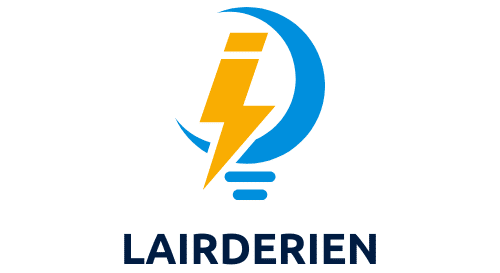In the modern world, technology has given a significant shake-up to diverse sectors, and real estate is no exception. Artificial intelligence (AI) has swiftly emerged as a powerful tool in the real estate industry, offering innovative solutions and insights that were unimaginable just a few decades ago. In particular, AI holds great promise for real estate investors seeking to optimize their property management strategies and investment decisions, with one key area being tenant turnover prediction. Predicting tenant turnover is paramount in the property market as it helps investors to plan ahead, manage properties effectively, and maximize their returns. So, how exactly can real estate investors leverage AI to foretell tenant turnover? This article unravels this question and provides an insightful exploration of the subject.
1. Understanding the Power of AI in Property Management
AI technology is irrefutably transforming the landscape of property management. With AI, real estate investors can gain a deeper understanding of their properties, tenants, and market trends, thus making informed decisions and streamlining their operations.
Sujet a lire : What Innovative Landscaping Can Maximize Biodiversity in Suburban Developments?
AI offers robust data analysis tools that aid in the collection, processing, and interpretation of vast amounts of data. These tools help property managers to analyze complex data sets, identify trends and patterns, and make predictions. Thus, they can comprehend the factors that may lead to tenant turnover and plan accordingly.
Moreover, AI-based systems can learn from experience, improving their predictive accuracy over time. This ability to learn and adapt makes AI a promising tool for property management, offering the potential to significantly reduce tenant turnover and maximize investment returns.
A découvrir également : What Are the Essential Features for Designing Smart Homes for People with Disabilities?
2. Harnessing AI for Tenant Turnover Prediction
Predicting tenant turnover can be a complex task, given the myriad factors at play, from rent levels and property conditions to market trends and tenant satisfaction. However, AI can simplify this task by using predictive analysis tools to identify patterns and trends in the data.
By analyzing historical tenant data, AI can identify patterns related to tenant turnover. These could include factors such as the duration of the lease, rent levels, demographic characteristics of tenants, and customer satisfaction ratings. Once these patterns are identified, AI can use this information to predict future tenant turnover, helping property managers to prepare in advance and take proactive steps to reduce turnover.
For instance, if the AI system identifies that tenants are more likely to leave when rents are increased, property managers can reconsider their rent increase strategies. Similarly, if the system finds that tenant satisfaction is a key determinant of turnover, property managers can focus on improving tenant satisfaction to retain tenants.
3. AI Tools for Real Estate Investors
There is a myriad of AI-powered tools available for real estate investors seeking to predict tenant turnover. These tools not only help in predictive analysis but also offer features like automated property management, tenant screening, and market analysis.
For instance, platforms like Ailo and Entrata offer AI-powered property management solutions that include predictive analytics. These tools can analyze a host of factors, from tenant behavior and lease terms to market conditions and property features, to predict tenant turnover.
Moreover, these AI tools provide real-time data analysis, ensuring that real estate investors have the most current information at their fingertips. This can be particularly valuable in a fast-paced market, where timely decisions can make a significant difference to investment returns.
4. The Future of AI in Real Estate Investment
The integration of AI in real estate investment and property management is only set to deepen in the coming years. As AI technologies continue to evolve, they will offer greater predictive accuracy, deeper insights, and more sophisticated tools for property investors.
AI is not just about predicting tenant turnover; it also holds the potential to transform other aspects of real estate investment. For example, AI can help investors identify promising investment opportunities, analyze market trends, and streamline property management processes.
Looking ahead, AI could even be used to create virtual property tours, interact with potential tenants, and automate routine tasks like rent collection and property maintenance. As such, real estate investors who embrace AI now stand to gain a competitive edge in the market.
5. Cautionary Notes on AI in Real Estate Investment
While AI offers immense potential for real estate investment, it is not without its challenges. One of the biggest concerns is data privacy and security. Given the sensitive nature of tenant data, it is crucial to ensure that AI systems are secure and comply with data protection regulations.
Another challenge is that AI predictions are only as good as the data they are based on. If the input data is inaccurate or incomplete, the predictions may be off the mark. Therefore, it is crucial to use reliable data sources and regularly update the data to ensure its accuracy.
Despite these challenges, the benefits of AI for real estate investment are undeniable. By leveraging AI for tenant turnover prediction, real estate investors can gain valuable insights, make informed decisions, and maximize their investment returns.
6. The Role of Machine Learning in Tenant Turnover Prediction
Machine learning, a subset of AI, is playing an increasingly significant role in predicting tenant turnover. Algorithms that continually learn from data, machine learning models observe trends and patterns, which can be applied to future decision making. This capability is particularly useful in forecasting tenant turnover for real estate investors and property managers.
Machine learning models can sift through large datasets of tenant histories and apply that learning to predict possible scenarios. These models take into account factors such as rent payment history, lease length, tenant complaints, and property valuation. This analysis helps in identifying tenants who are likely to leave and those who are likely to stay.
For instance, machine learning algorithms can predict whether a tenant is likely to move out based on their frequency of late rent payments. If a tenant’s late payment frequency increases, it could be an early sign that they may soon vacate the property. Armed with this information, property managers can take proactive measures to prevent this from happening.
Therefore, real estate investors who integrate machine learning into their property management strategies can significantly benefit from more accurate tenant turnover predictions.
7. How Real-Time Data Enhances Tenant Turnover Forecasting
The use of real-time data in predicting tenant turnover has proved to be game-changing in the real estate industry. Real-time data refers to information that is delivered immediately after collection, offering estate professionals instant insights into various aspects of property management.
Real-time data can enhance tenant turnover prediction by providing current information on factors influencing tenants’ decisions to stay or leave. These factors can include changes in market trends, fluctuations in property prices, and changes in tenant satisfaction levels.
For example, real-time data on market trends can help property managers adjust their rental prices in line with current market rates. If rental prices are too high compared to the market average, tenants might choose to move, increasing tenant turnover. On the other hand, if rental prices are competitively set, it could result in higher tenant retention.
Moreover, real-time data allows for immediate feedback from tenants. Property managers can use this feedback to improve their services, such as prompt maintenance and effective communication, thus enhancing tenant satisfaction and reducing turnover.
8. Conclusion
Artificial intelligence, machine learning, and real-time data are reshaping the landscape of real estate investment and property management. These technologies offer innovative solutions for predicting tenant turnover, enabling real estate investors to make data-driven decisions, manage properties effectively, and maximize returns.
However, while AI and predictive analytics hold immense potential for the real estate industry, estate professionals must also keep in mind the associated challenges. Ensuring data privacy, maintaining data accuracy, and adapting to rapidly changing technology are key considerations when deploying AI tools.
In conclusion, the future of real estate investment is likely to be greatly influenced by the continued integration and evolution of AI. For those willing to embrace these technologies, a future of enhanced decision making, improved property management, and maximized returns awaits.






